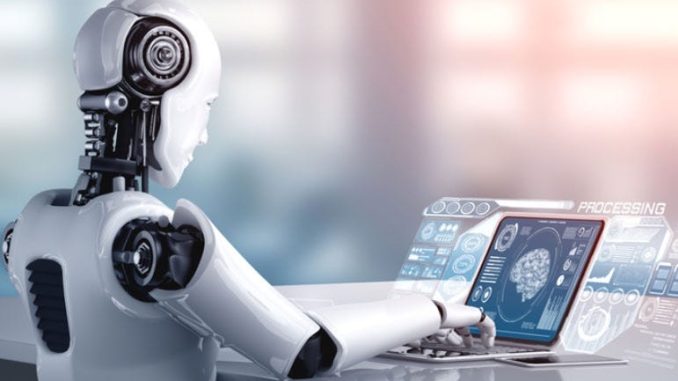
From an idea on paper to the major force transforming a variety of corporations and people’s daily lives, Artificial Intelligence (AI) has rocketed through its development and become. as AI technologies continue to advance more breakthroughs will come in all sorts of enterprises and domains. the future of AI is exciting indeed Recent Breakthroughs in AI
Deep Learning Breakthroughs:Deep learning, a subset of AI theory that emulates the neural networks of the human brain, has seen significant advances. Breakthroughs in deep learning algorithms such as convolutional neural networks (CNNs) and recurrent neural networks (RNNs) have helped to significantly advance image recognition technology, natural language processing (NLP), as well as forecasting and predictive analytics.
Generative AI: Generative AI models, like Generative Adversarial Networks (GANs) and Variational Autoencoders (VAEs), are reshaping the way people do creative work.Using this generative technology, model. s can generate realistic images, videos , music and text. This has led to new content creation, design and entertainment applications.
Reinforcement Learning: Reinforcement learning, a subset of AI focusing on decision-making and optimization, has achieved breakthroughs in autonomous systems and robotics. Through trial and error provided by such algorithms as Deep Q-Networks (DQNs) and Proximal Policy Optimization (PPO), machines can learn how to perform intricate tasks, potentially opening the door for autonomous vehicles, drones and industrial automation.
Explainable AI (XAI) Explainable AI is gaining attention especially in vital applications where transparency and interpretability are essential. Researchers are developing AI models which can provide explanations for their decisions and actions, thus promoting trust, responsibility and ethical use of AI systems. Emerging Trends in AI
AI-Powered Healthcare:AI is changing the way healthcare is done with applications like medical imaging, disease diagnosis, drug discovery, personalized treatment plans,and so on. AI-powered algorithms can analyze large amounts of medical data to improve accuracy, efficiency and patient outcomes.
AI-enabled autonomous vehicles are a major development in transportation and mobility. Advanced AI algorithms make vehicles aware of their surroundings and allows for making instantaneous decisions; at the same time, those decisions are made in real time depending on whattype environment the car finds itself in.⋯
Conversational AI technologies, such as virtual assistants and chatbots, are becoming increasingly sophisticated. Natural language understanding (NLU) and speech recognition capabilities enable AI systems to interact with users, provide information, automate tasks, and offer a more personalized experience.
AI in Finance: with AI being applied to the financial sector itself, fraud detection algorithms, risk-assessment methods and even customer service forms are making a fundamental change. AIlowered somatic tools, big data analytics to manipulate large datasets combined with machine leanring software meant that suddenly even small infringements on customer privacy could be detected in real time and necessary actions taken immediately.
Applications of AI Across Industries
Retail and E-Commerce: In retail businesses artificial intelligence is used for personalized recommendations to customers, inventory management, demand forecasting, customer segmentation, and chatbot-based customer support. AI-powered recommendation engines achieve the twin goals of improving user experience while driving sales in ecommerce platforms.
Manufacturing and “Industry 4.0”: In manufacturing, AI allows for predictive maintenance, quality control, supply chain optimization, and autonomous production processes. Industry 4.0 initiatives use AI and data analytics as well as sensors to increase efficiency and create smart factories .
Education and EdTech: AI technologies impact education via adaptive learning platforms, virtual classrooms, intelligent tutors systems, and creation of educational content. The intelligence systems built into the apps tell which tweets are going viral, what exactly is the latest fashion craze in jr high schools nationwide, how people feel about company Qatars Tour de France sponsorship now that it’s two weeks into the race…whatever data one chooses to focus a particular app on it will tell you
Cybersecurity: AI plays a vital role in cybersecurity for threat detection, anomaly detection, behavior analysis, and automatic response mechanisms. AI algorithms can detect suspicious activities, mitigate risks, and build up defenses against cyber attacks.
Energy and Sustainability: AI is an important contributor to energy optimization and management, integration of renewable energies into the grid, predictive maintenance for infrastructure services provision, and smart grid management. AI algorithms improve energy efficiency, reduce waste in production processes, and promote sustainable practices for obtaining energy .
As hoped for the future of AI is bright but is also fraught with challenges and considerations in need of intention, such as:
Ethics and Bias: AI systems must be developed and used ethically, tackling partiality, fairness, transparency, responsibility, and privacy. The responsible use of AI and regulatory frameworks are keys to guaranteeing that AI technologies are used ethically.
Skills and Workforce Development: The rapid progress of AI requires a skillful workforce that can create AI, understand data science, make operating decisions about machine learning technologies, and develop domain-specific applications. Continuing education and skills updating are vital for supplying the demand for AI workers.
Data Privacy and Security: When AI applications use data in the large, questions arise about data privacy, security, and compliance with data protection law. Model data management designs, cryptogram security, and cyber security practices are crucial for the protection of sensitive information.
AI-Human Collaboration: As AI technologies develop, we must maintain the collaboration between humans and AI, taking advantage of AI’s strengths in automation, efficiency, and decision support while keeping human judgement, individuality, reciprocity and ethical judgement.
Conclusion
The future of AI is one of constant novelty, poineering applications, and widespread influence in society. Breakthrough AI technologies, upcoming trends gradually being seen and applied, not only are changing industries but also greatly improving productivity and people’s livelihood. In order to bring out the full potential of AI for a smarter, even more connected and sustainable society, it is essential to address the challenges posed by further progress in technology, blue up for moral Company.
Leave a Reply